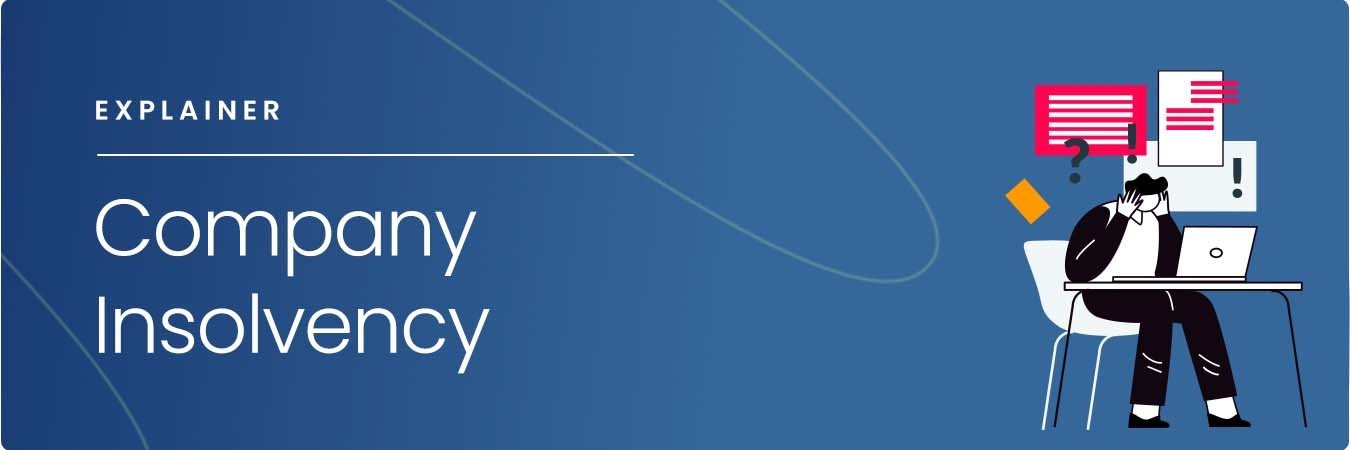How Insolvency Practitioner can Save You Time, Stress, and Money.
How Insolvency Practitioner can Save You Time, Stress, and Money.
Blog Article
The Buzz on Insolvency Practitioner
Table of ContentsOur Insolvency Practitioner DiariesSome Ideas on Insolvency Practitioner You Need To KnowAll about Insolvency PractitionerInsolvency Practitioner Fundamentals ExplainedFacts About Insolvency Practitioner UncoveredSome Known Questions About Insolvency Practitioner.
Insolvency is the procedure where a firm is wound up and its possessions are offered off to pay lenders. This is generally the last hope, as it can have an extremely unfavorable result on the business's credibility. Receivership occurs when a business is not able to pay its financial debts and is positioned under the control of an exterior manager.Volunteer administration is similar to receivership, but it is started by the directors of the company as opposed to the financial institutions. This alternative is typically made use of when a firm is dealing with monetary difficulties however there is still wish that it can be transformed about. Company insolvency is a complex and major concern that can have far-ranging ramifications for companies of all sizes.
With the ideal help, you can make sure that your service has the very best possibility of weathering this hard time.
The smart Trick of Insolvency Practitioner That Nobody is Discussing
Whatever your reason for closing your company, there are many considerations you have to deal with prior to 'shutting the doors'. There's likewise a whole lot you can do to make the procedure less stressful and improve outcomes. Closing down your business is not nearly satisfying the useful and legal needs.
Deal with your staff members As an employer, you need to monitor and supply support to your employees throughout this stressful time - Insolvency Practitioner. Know any kind of possible wellness and wellness issues they could experience due to: task insecuritytransitioning via the sale of the businesschange in proprietors. You can: There are extensively 2 situations in which you would voluntarily shut your company
You likewise: do not intend to, or can not, market the businesshave no-one to take it over. You're likely to have time to plan your closure. This will help you to: close efficientlymeet your lawful obligationssave moneytake away maximum profits. You might be shutting your company because: it's not covering its expenses and running costsyou can not maintain the operating prices while trying to sell it.
More About Insolvency Practitioner
:max_bytes(150000):strip_icc()/accountinginsolvency_definition_final_primary_1013-ec9f30044d93461fb78191b77bbcbd17.jpg)
It offers a: timeline for finishing activitieslist of lawful needs and other factors to consider. Depending on your legal structure, all or a few of the complying with factors could put on you when you willingly shut your company. Talk to your accounting professional, solicitor and service consultant about lawful needs for shutting your organization. It is crucial to pay for these services to ensure you do it correctly and with the minimum variety of adverse effects as feasible.
You need to settle all tax concerns for your business, even if it's no more trading. This includes your obligations regarding settlement of: edge advantages taxpay-as-you-go (PAYG)superannuationemployment discontinuation. Discover more concerning these responsibilities to workers. You'll additionally require to cancel your employees' settlement policy by complying with instructions on web page 4 of the WorkCover understanding your employees' settlement accident insurance plan (PDF, 828KB).
Unknown Facts About Insolvency Practitioner

If you attempt to deal with it yourself, you'll require to interact with every financial institution separately to attempt to discuss normal repayment amounts. Bankruptcy or personal bankruptcy consultants can: assistance you through the processhelp you comprehend your optionsnegotiate with your creditors in your place. They hold specific permits and credentials in this specialized field.
4 Simple Techniques For Insolvency Practitioner
It's vital to recognise monetary trouble early so you can look at methods to stay clear of bankruptcy. You need to also understand financial institutions putting queries or defaults versus your credit rating data. You need to always look for financial and lawful suggestions when you are having trouble managing your financial debts (Insolvency Practitioner). It's difficult to spend for this advice when you're in economic trouble.
Personal insolvency for single investors and individuals within collaborations Personal bankruptcy treatments relate to: Prior to beginning an individual bankruptcy procedure, it is very important to understand the: effect of the consequenceshow long the impact will be. Repercussions can consist of: a record on your credit history filenot being able to get financehaving rental applications rejectedrestrictions on future employmentinability to be a director of a service.
Financial obligation agreements, also referred to as a Part IX arrangement, permits you, or the appointed manager, to negotiate with your financial institutions to pay a portion of the consolidated debts over an amount of time to your administrator, as opposed to trying to continue paying to each creditor. There are specific limits for the value of debt, residential or commercial property and earnings that you should drop under Click Here to be eligible for a Part IX financial debt arrangement.
Insolvency Practitioner Fundamentals Explained
Business insolvency and liquidation An 'bankrupt firm' is not able to pay its financial obligations or cover the expense of its overheads. In some situations, financially troubled companies might go right into liquidation. Liquidation is when an independent authorized liquidator is appointed to take control over the company and end up the firm organization in an orderly way.
As noted in the Intro, while the report reveals certain preferences relative to several of the more vital of these choices, it does not attempt to establish standards in this complex location. In addition, it may need to be updated in the future to take right into account developments in this area.

Report this page